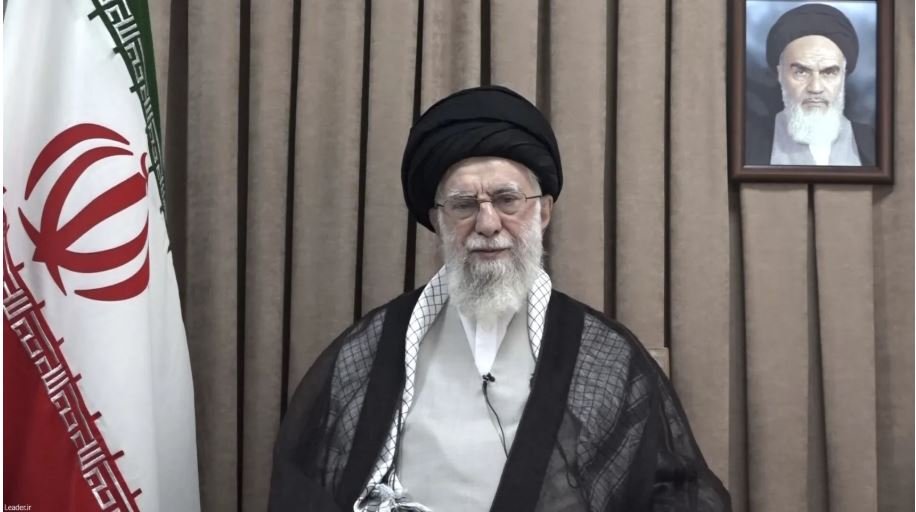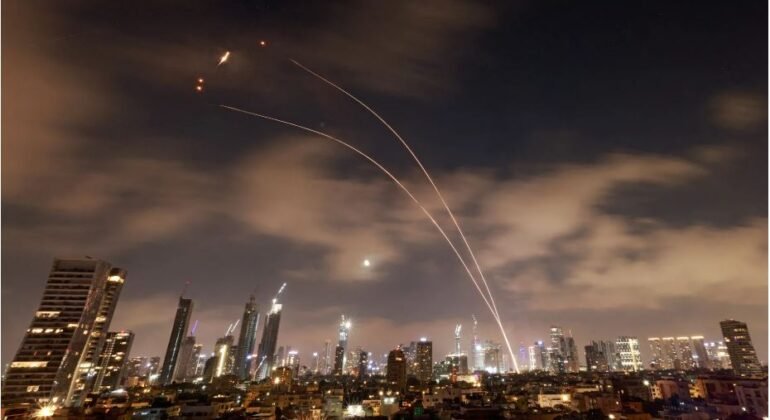Iran’s Leader Disobeys US War Intervention Consideration
Iran’s Leader Disobeys US War Intervention Consideration
June 18, 2025 / By Zunair Tahir / World News
- Trump’s demands for a “unconditional surrender” were rejected by Iran’s Supreme Leader Ayatollah Ali Khamenei, who also threatened “irreparable damage” from any US military invasion.
- Trump thought about enlisting Israel in the fight, which would increase the likelihood that Iran would stop developing nuclear weapons but run the danger of causing a protracted confrontation in the oil-rich area.
- The US was considering its options, including meeting with the head of Pakistan’s army to seek mediation, as the crisis between Iran and Israel stretched into its sixth day, with both sides trading attacks.
In defiance of US President Donald Trump’s demands for a “unconditional surrender,” Iran’s Supreme Leader Ayatollah Ali Khamenei declared he would not submit to Israel, sparking rumors that Washington would join the Israeli strikes.

Khamenei stated in a statement released by the semi-official Fars news agency on Wednesday that “the Americans should know that any military incursion by the United States will undoubtedly result in irreparable damage.”
A slew of Trump social media tweets and diplomatic moves from the White House seemed to suggest the US president is thinking about joining the battle, a significant choice that would define his term. The likelihood of Iran’s nuclear development being permanently stopped would be significantly increased by direct US military action with Israel, but doing so would run the danger of igniting a protracted battle in the oil-rich area.
Trump made a call for Iran’s surrender and warned a potential strike against Khamenei on Tuesday before meeting with his national security team to address the growing conflict.
Trump said on social media, “We know exactly where the so-called ‘Supreme Leader’ is hiding.” “We are not going to kill him, at least not right now, even though he is a simple target and safe there.”
According to those with knowledge of the situation, the Tuesday discussion in the US capital lasted more than an hour. According to a White House official, Trump then had a conversation with Israeli Prime Minister Benjamin Netanyahu. There were no further formal remarks.
The White House declared that Trump will meet with the head of Pakistan’s army on Wednesday, only hours after the Situation Room meeting. The South Asian nation, which is one of Iran’s most important allies, has stated that it would be open to serving as a mediator between the US and Iran.
Citing direct connection with his counterpart in Tehran, Pakistan’s Foreign Minister Ishaq Dar stated Monday that Iran is amenable to restarting discussions over its atomic activities if Israel abstains from carrying out any strikes.
“Successful negotiations between the United States and Iran was always our goal,” Dar said in parliament.
The avowed goal of Israel’s attack, which started late last week, is to destroy the Islamic Republic’s atomic program completely, and US weapons are seen to be essential to this goal. Trump has so far rejected requests from certain political friends to join strikes on Iran, despite the fact that the US is Israel’s closest defense partner and arms supplier.
Israel is interested in US involvement because of its military capabilities, including B-2 planes and bunker busting bombs, as well as the benefit of having the most powerful nation in the world on its side. However, authorities have been reluctant to approach Washington directly in an effort to prevent resistance from Republicans.
According to two senior Israeli officials who asked not to be named while discussing sensitive topics, Israel prepared the operation without US help and could carry it out on its own if needed. According to one of the sources, Israel has already done the most of the hard work by destroying the majority of Iran’s missile defense systems and causing damage to the nuclear plant in Natanz, giving the US a significant security edge without sending troops into the conflict.

Wednesday saw minimal movement in US futures as traders partially shifted their attention to a monetary policy announcement from the Federal Reserve. After reversing early declines, oil prices increased by 0.4%, with Brent trading slightly below $77 per barrel.
When Israel launched surprise assaults on Iranian military and nuclear facilities this week, killing senior commanders and atomic scientists, long-standing tensions between Iran and Israel broke out into open combat. Since then, it has gained air supremacy over a large portion of Iran, giving it the freedom to strike infrastructure and important cities whenever it pleases.












